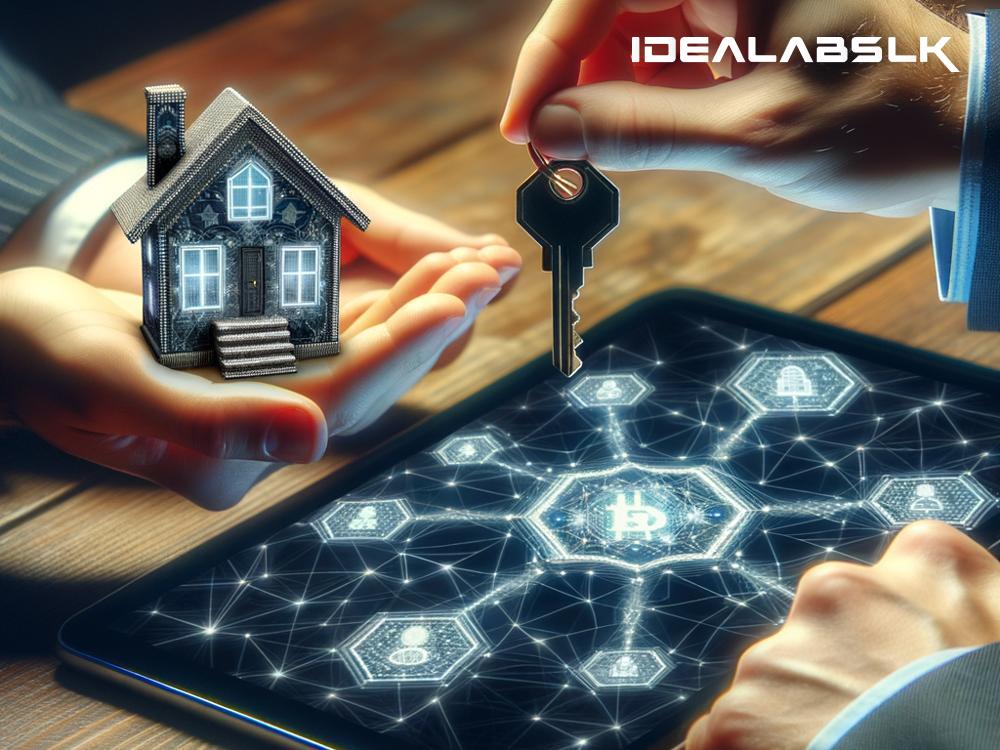Blockchain-Backed Real Estate Title Verification: A Game Changer in Property Transactions
In the world of buying and selling property, one of the most critical steps is verifying the title of the real estate. Traditionally, this process has been fraught with challenges, including fraud, errors in public records, and a significant amount of time and money spent on due diligence. However, the advent of blockchain technology offers a promising solution to streamline and secure real estate title verification. Let's explore how blockchain-backed real estate title verification is revolutionizing the property market, making transactions smoother and more reliable for everyone involved.
Understanding the Basics: What is Blockchain?
Before diving into the specifics of how blockchain can transform real estate title verification, it's essential to have a basic understanding of what blockchain is. In simple terms, blockchain is a digital ledger that securely records transactions across multiple computers. This means that once a transaction is recorded on the blockchain, it cannot be altered or deleted, ensuring a high degree of transparency and security.
The Traditional Title Verification Process: A Web of Complexity
Traditionally, the process of verifying a property's title involves a lot of paperwork and back-and-forth between multiple parties, including real estate agents, buyers, sellers, and title companies. This process can be time-consuming and expensive, not to mention ripe for human error. Moreover, there's always a risk of fraud, such as the selling of a property by someone who is not the rightful owner, which can lead to legal disputes and financial losses.
How Blockchain Comes Into Play
Blockchain technology is poised to revolutionize this cumbersome process by offering a more streamlined, secure, and transparent way to verify real estate titles. Here's how it works:
-
Decentralized Records: Unlike traditional title verification, where records are kept in a single database or ledger controlled by a central authority (such as a government registry or a title company), blockchain operates on a decentralized network. This means that the title records are distributed across many computers on the blockchain network, making it nearly impossible to tamper with the data.
-
Transparency and Access: Blockchain ledgers are transparent and can be viewed by anyone in the network while ensuring the privacy of the parties involved. This openness makes it easy for all parties in a real estate transaction to verify the authenticity of a title without going through intermediaries.
-
Speed and Efficiency: Transactions recorded on the blockchain can be processed much more quickly than traditional methods. Since the need for extensive paperwork and verification from third parties is significantly reduced, the time to close on a property can be shortened dramatically.
-
Reduced Costs: By cutting out middlemen and reducing the time and labor involved in verifying titles, blockchain can considerably lower the costs associated with real estate transactions.
-
Security: Perhaps the most significant advantage of blockchain is its high level of security. The technology's encryption methods and the immutable nature of the blockchain ledger make it extremely difficult for fraudsters to forge documents or steal identities.
Real-World Applications and Challenges
Several startups and established companies are already exploring the use of blockchain for real estate title verification. For instance, some companies have launched platforms that allow users to conduct real estate transactions entirely on the blockchain, from verifying titles to transferring ownership and even securing mortgages.
However, widespread adoption of blockchain in the real estate sector faces challenges. Regulatory hurdles, the need for standardization, and the tech's novelty mean that it might take some time before blockchain-backed title verification becomes the norm.
The Road Ahead
As blockchain technology continues to evolve and mature, its potential to transform the real estate industry becomes increasingly apparent. With its promise of enhanced security, efficiency, and transparency, blockchain-backed real estate title verification could well be the future of property transactions. As more stakeholders recognize the benefits and work together to overcome the challenges, we may soon see a day where buying a house is as easy and secure as making a purchase online.

